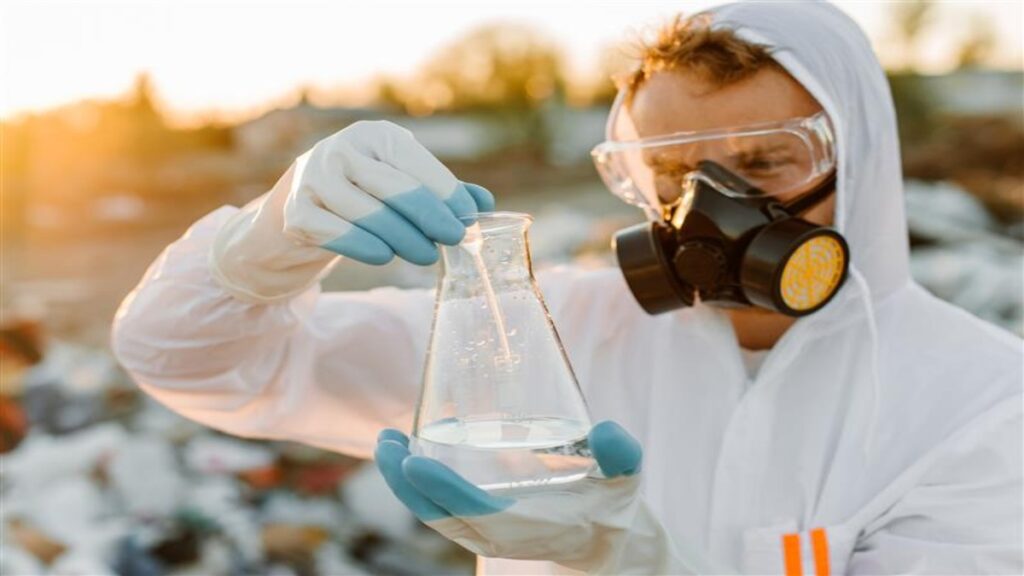This blog explores how ETP chemicals and bio culture for ETP work together to purify industrial wastewater efficiently. It highlights their roles in improving effluent quality, supporting MLSS levels, and ensuring sustainable ETP treatment processes.
Clean water is no longer a luxury—it’s a necessity that industries across the globe must prioritize. As environmental regulations tighten and awareness grows, the importance of wastewater treatment systems like ETP (Effluent Treatment Plants) has surged.
At the heart of efficient ETP operation and maintenance lie two unsung heroes: specialized ETP chemicals and bio culture for ETP. Together, they ensure harmful pollutants are effectively treated, allowing water to be safely discharged or reused.
This blog explores how these elements work in tandem within the ETP treatment process, breaking down their role in restoring water purity and protecting ecosystems.
Understanding Effluent and the Need for ETP
Industrial processes—from textiles to pharmaceuticals – produce vast amounts of effluent, which is water contaminated with toxic materials, organic waste, heavy metals, and chemical residues. Without proper treatment, discharging this wastewater can severely damage the environment and public health.
That’s where an ETP plant comes in. Designed specifically to treat and purify industrial wastewater, ETPs follow a structured process involving physical, chemical, and biological steps. Each phase is crucial, but the real magic begins when bio culture and effluent treatment plant chemicals come into play.
The Biological Power of Bio Culture
Bio culture for wastewater treatment refers to a consortium of beneficial microorganisms that break down organic pollutants. These microorganisms thrive in controlled environments within ETPs and STPs (Sewage Treatment Plants), actively digesting organic matter and converting it into less harmful forms.
The advantages of using bio culture are significant:
- It enhances biodegradation of complex compounds.
- Reduces unpleasant odours in the treatment system.
- Decreases the sludge generation rate.
- Speeds up the biological treatment cycle.
Introducing bio culture for ETP into the aeration tanks boosts microbial activity and leads to more efficient purification. In addition, consistent use helps maintain MLSS in wastewater treatment – a vital indicator of microbial health and overall biological treatment performance.
Role of MLSS in Sewage Treatment
MLSS (Mixed Liquor Suspended Solids) in sewage treatment is essentially the measure of microorganisms and suspended solids in the aeration tank. It acts as a barometer for the effectiveness of the ETP treatment process.
Maintaining optimal MLSS in sewage treatment plant ensures that there are enough microbes to degrade organic pollutants.
If MLSS levels drop, biological treatment slows down. On the other hand, too much MLSS can cause settling issues and sludge bulking. Striking this balance requires skilled ETP operation and maintenance to ensure consistent and effective performance.
When bio culture is added strategically, it helps stabilize MLSS, leading to improved effluent quality and smoother downstream processes.
Chemical Backbone of ETP Treatment
While bio culture tackles organic waste, ETP chemicals are used to address the physical and chemical characteristics of wastewater. These industrial wastewater treatment chemicals aid in pH correction, coagulation, flocculation, decolorization, and odor control.
Key types of ETP chemicals include:
- Coagulants and flocculants: Help remove suspended solids.
- Defoamers: Minimize froth formation in aeration tanks.
- Oxidizing agents: Break down stubborn contaminants.
- pH adjusters: Maintain ideal pH levels for microbial activity.
Strategic ETP chemical dosing ensures that the treatment process remains stable and responsive to changes in effluent characteristics. Whether you’re dealing with high TSS in ETP (Total Suspended Solids) or pH fluctuations, the right chemical mix is non-negotiable.
STP and ETP: What’s the Difference?
People often confuse STP and ETP, but they serve distinct purposes:
- STP (Sewage Treatment Plant) is typically used to treat domestic wastewater from households, offices, or commercial buildings.
- ETP (Effluent Treatment Plant) on the other hand, is tailored for industrial wastewater treatment, often containing complex chemical pollutants and higher toxicity levels.
Both systems may utilize bio culture, but the strain selection and chemical usage vary significantly based on the composition of the incoming water.
Optimizing the ETP Ecosystem
An efficient effluent treatment process relies not just on quality equipment but also on the right blend of bioculture, precise chemical dosing, and consistent operational practices. To ensure peak performance, consider these best practices:
- Regular monitoring of MLSS and TSS levels.
- Ensuring proper aeration to support microbial growth.
- Fine-tuning chemical dosing based on incoming effluent load.
- Avoiding sudden shocks to the system like pH surges or heavy metal spikes.
Routine maintenance plays a key role in keeping the treatment system running smoothly. This includes regular cleaning, equipment checks, sensor calibration, and timely replenishment of essential inputs.
The Environmental Impact of Doing it Right
When industries invest in a well-run ETP system, the benefits go far beyond regulatory compliance:
- Environmental protection: Prevents contamination of soil and water bodies.
- Public health: Reduces exposure to harmful pathogens and chemicals.
- Sustainability: Treated water can be reused for non-potable purposes, reducing freshwater consumption.
- Cost efficiency: Reduces fines, water purchase costs, and long-term environmental liabilities.
All these advantages are unlocked through the strategic use of ETP chemicals and bio culture. It’s a small investment for a massive long-term payoff.
Conclusion: Clean Water Begins with Smart Treatment
Treating industrial wastewater is not just about ticking off a compliance checklist—it’s about doing what’s right for the environment, public health, and long-term business viability. With the right microbial support, balanced chemical dosing, and disciplined maintenance, industries can effectively turn wastewater into a reusable resource.
What we flush out shouldn’t come back to haunt us. The combination of biology and chemistry in wastewater management gives industries a way to clean responsibly, operate efficiently, and contribute to a healthier planet—one treatment cycle at a time.
Looking to source high-quality bio cultures and effective effluent treatment plant chemicals? Amoda Chem offers tailored solutions for ETP and STP systems across a range of industries. Their products are engineered for performance, efficiency, and compliance, helping businesses meet environmental goals without compromise.


